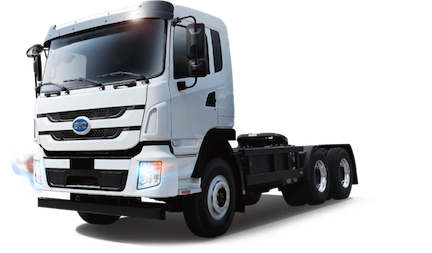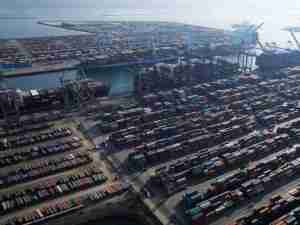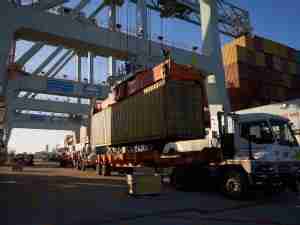A major Port of Oakland freight hauler is ready to take the next step with battery-powered trucks. GSC Logistics said today it would acquire two more electric big rigs by October. The Port’s largest trucker said it wants to discover if zero-emission tractors can haul cargo containers over highways.

“Our first tractor is fine moving containers around the Port…it does the job,” said GSC Director of Transportation Brandon Taylor. “Now we want to test these new trucks on the road – the manufacturer says they can haul fully loaded containers 55 miles per hour up a steep grade.”
GSC said it’s acquiring two 13-ton electric trucks with assistance from state grants. The rigs would both have twin 241-horse power battery-driven motors. Each truck would be able to travel 125 miles on a battery charge, GSC said. The new electric trucks would be heavier than GSC’s first model due to battery weight.
GSC, which hauls the equivalent of 120,000 20-foot-containers annually through Oakland, began electric truck testing 18 months ago. The company expects its second battery-powered rig this month. A third arrives in the fall.
Port of Oakland environmental scientists are following the trial closely. That’s because battery-powered tractors are expected to factor in Oakland’s stated quest for zero-emission cargo handling. GSC and three other companies, Impact Transportation, Oakland Maritime Support Services and ConGlobal currently operate electric tractors near the Port. The Port projected that there could be as many as 20 battery-powered trucks hauling containers by year-end.
“We’re grateful to these firms for taking a chance on battery power,” said Port of Oakland Environmental Programs and Planning Director Richard Sinkoff. “We can’t get to zero emissions without pioneers to lead the charge.”
It’s hoped that emission-free electric trucks can someday replace the 6,000 diesel tractors hauling containers in Oakland. That won’t happen, industry experts say, until costs come down and trucks can go further on a single charge. There’s one other challenge: battery-charging infrastructure.
“The technology and capability of electric tractors is moving fast,” said Mr. Taylor. “But the ability of a truck owner-operator to buy an electric truck and have the electrical infrastructure to support it may be years away.”








